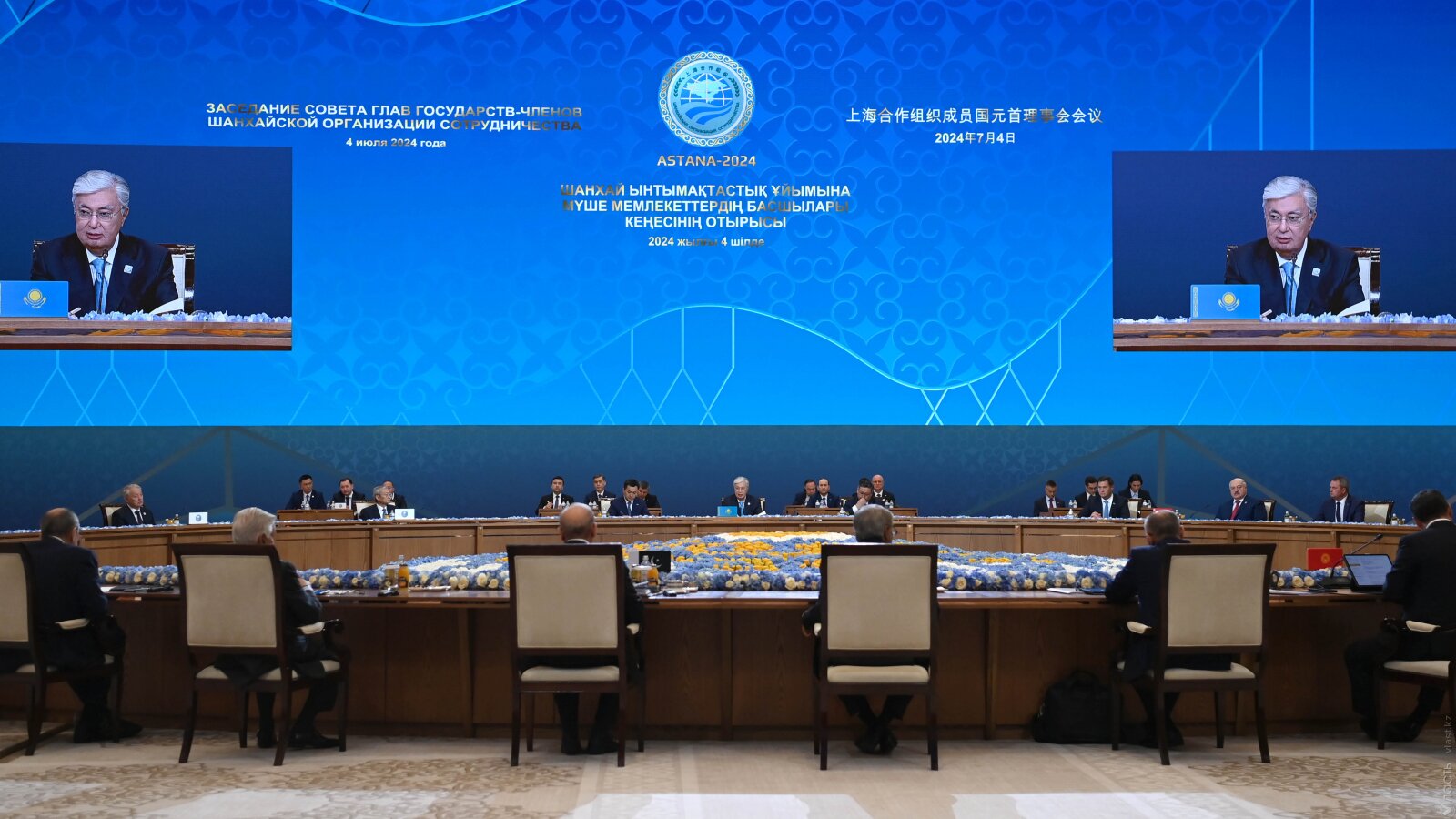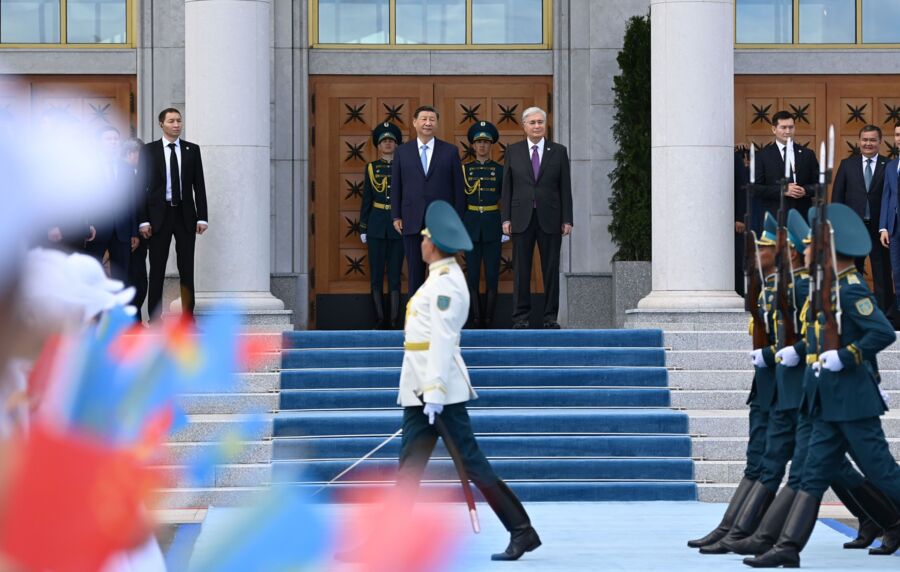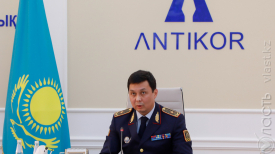- ВКонтакте
- РћРТвЂВВВВВВВВнокласснРСвЂВВВВВВВВРєРСвЂВВВВВВВВ
At its annual summit, this year in Kazakhstan’s capital Astana, the leaders of China, Kazakhstan, Kyrgyzstan, Iran, Pakistan, Russia, Tajikistan, and Uzbekistan joined together to reaffirm the bloc’s support for a multipolar world order.
Indian Prime Minister Narendra Modi declined to participate in the summit, with observers citing ongoing tensions between India and China.
Born in 1996 as the “Shanghai Five”, grouping just China, Kazakhstan, Kyrgyzstan, Russia, and Tajikistan, the SCO has grown into a diplomatic platform beyond China and Russia’s immediate neighborhood.
Kazakhstan is slated to play a larger role within the SCO platform. Kazakhstan’s former ambassador to Beijing, Nurlan Yermekbayev, was appointed to become the SCO’s next secretary general, for the period 2025-2027.
Importantly, with its westward expansion and with the milestone of reaching double-digit membership, the SCO has now garnered increased diplomatic currency. Observers turn their focus on its summits every year and dissect the speeches to read between the lines of one of the unique occasions where the largest non-western powers convene.
This year’s summit represented a key occasion for China’s President Xi Jinping to counter what he called the “threat of the Cold War mentality.”
“SCO members should consolidate unity and jointly oppose external interference in the face of the real challenges of interference and division,” he said, according to Xinhua.
Russia’s President Vladimir Putin also urged the bloc to focus on a new order: “A new architecture of cooperation, indivisible security and development in Eurasia, designed to replace the outdated Eurocentric and Euro-Atlantic models, which gave unilateral advantages only to certain states.”
Eva Seiwert, an analyst on China’s foreign and security policy at Berlin’s Mercator Institute for China Studies (MERICS), said that the Astana summit helped China and Russia define and communicate their priorities.
“This year's summit can once again help Russia showcase that it is not internationally isolated. China and Russia increasingly try to turn the SCO into a geopolitical bloc that represents their idea of a ‘new international order’, rather than a regional organization that focuses solely on joint issues on the ground,” Seiwert told Vlast.
"The multi-polar world has become reality," Putin said at the meeting.
Bhavna Dave, senior lecturer in Central Asia Politics at SOAS in London, said an enlarged SCO could show the diplomatic cracks among her members.
“SCO members all believe in this multi-polar order, and they all believe that the SCO represents a different kind of order than the western one. But there are so many different groups and different views within the organization,” Dave told Vlast.
“The emerging solidarity and the expansion plans represent a signal that the SCO is sending to other actors in the region and outside,” Dave said. “But the actual significance of the SCO is not very clear. We don't know in what ways, if any, the SCO managed to promote economic cooperation and trade partnerships among the member states.”
BRICKS?
Ahead of the SCO meeting, Xi paid an official visit to the host, Kazakhstan’s Kassym-Jomart Tokayev.
Besides promises of investment and trade, the two sides agreed to open a branch of the Beijing Language and Culture University (BLCU) in Astana. This is an important and symbolic diplomatic step, given that Tokayev studied at BLCU for a year in the 1980s.
According to Giulia Sciorati, a fellow at the department of International Relations of the London School of Economics, focusing on China-Central Asia relations, the partnership being forged between China and Kazakhstan is growing stronger.
“For China, aiding Kazakhstan to become a well-established international player could contribute to regional stability. We should not forget that during Xi’s first post-COVID visit, he emphasized the role of China in preserving Kazakhstan’s territorial integrity.”
In fact, during the SCO meeting, Xi said China would support the accession of Kazakhstan into the BRICS, another platform that non-western countries have used to coordinate policies.
This, Sciorati wrote, “aligns with Beijing’s desire to expand the bloc.”
“China is spending quite a lot of political capital in an effort to rid itself of the label of neo-colonial power in the Global South and in its neighborhood, also through the development and consolidation of groups such as the BRICS,” Sciorati told Vlast.
Besides the founding members Brazil, Russia, India, and China (and South Africa, that joined one year later in 2010), the BRICS group welcomed Iran, Egypt, Ethiopia, and the United Arab Emirates as new members this year.
Seiwert said that a possible entry into the BRICS would boost Kazakhstan’s international profile.
“Like the SCO, the BRICS seems keen to expand at an unprecedented pace. Joining the BRICS would be a diplomatic win for Kazakhstan in that it would highlight Astana's position as the leading state in Central Asia,” Seiwert told Vlast.
The advantages could be both diplomatic and economic, according to the researchers.
“Groups like the BRICS give a semblance of stability and inclusion,” Sciorati said.
“Kazakhstan presumably also hopes to benefit from gaining access to the BRICS market and attracting FDI, as well as having another platform on which it can regularly interact with important global players such as China and Russia,” Seiwert added.
Yet, an expanded BRICS membership could be more of a publicity stunt than an effective mechanism to express a single voice from these non-western powers.
“Adding new members like Kazakhstan will increase the group's international visibility but at the same time make it even harder for members to agree on common positions,” Seiwert said.
Dave remains skeptical.
“There's still a question about what exactly the BRICS group does and what kind of cooperation it promotes. It doesn't have geographic continuity. There are also economic, demographic, and military disparities between its members.”
Поддержите журналистику, которой доверяют.









